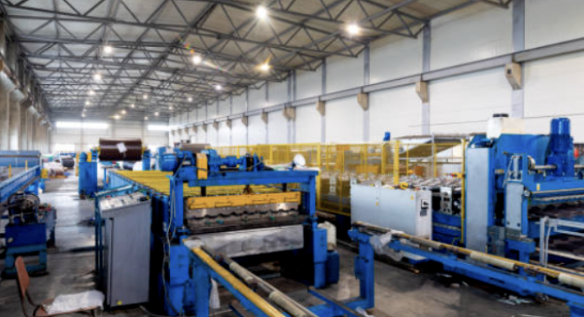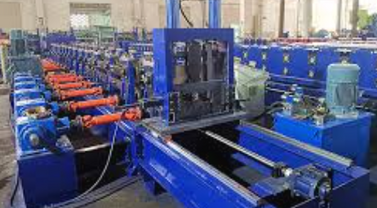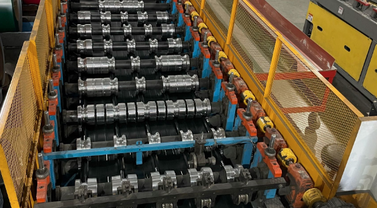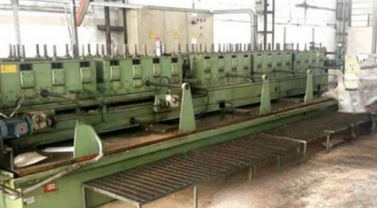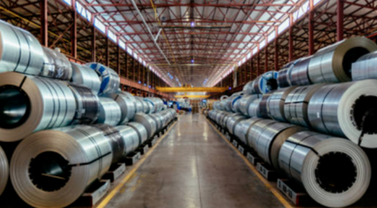Choosing the Right Roll Forming Machine for Ethiopian Businesses: A Comprehensive Guide
When choosing the best roll forming machine for a business in Ethiopia, it’s essential to focus on how specific needs align with the machine's capabilities. Here’s a detailed breakdown of what to consider based on Ethiopian industries, whether in construction, metalworking, or agriculture.
1. Identify Industry Needs
- Construction: This sector often requires roll forming machines for roofing sheets, wall panels, and structural profiles. Key considerations include:
- Machine Size: Machines with larger forming widths are better for wider panels, often required in roofing.
- Speed: Medium to high-speed machines (15–30 meters per minute) are ideal for construction to meet the high volume demands.
- Material Capability: Ensure the machine can handle materials like galvanized steel, aluminum, or pre-painted coils commonly used in construction.
- Metalworking: For manufacturing smaller profiles or precision products, focus on:
- Precision and Adjustability: Machines with precise tolerances and easy adjustment features are best.
- Profile Flexibility: A versatile machine that can be adjusted for various profiles is essential.
- Production Speed: Moderate speed is generally sufficient here, but consistency and accuracy should be prioritized.
- Agriculture: For industries producing equipment like greenhouses, silos, or fencing components:
- Heavy-Duty Capability: Machines that handle thicker materials, such as steel or aluminum, for durability.
- Low to Moderate Speed: Since the demand for profiles may be lower, speed is less critical, focusing instead on durability and strength.
- Custom Profiles: Some agricultural needs may be unique, so machines with customizable tooling for special shapes can be advantageous.
2. Machine Size
The size of the roll forming machine should match the workspace and production requirements:
- Compact Models: For smaller businesses or workshops with limited space, compact machines that still offer powerful performance are a good choice.
- Large-Scale Machines: For high-volume or larger-profile production, larger machines that can accommodate bigger metal coils and run longer production lines are better suited.
3. Production Speed
Machine speed varies across industries:
- High-Speed Machines: Ideal for construction and large-scale operations, where high throughput is essential.
- Moderate Speed Machines: Suitable for metalworking or specialized production with a focus on precision rather than volume.
- Adjustable Speed Settings: For businesses with varying needs, a machine with adjustable speed is versatile and adaptable.
4. Material Compatibility
Different industries require different material capabilities. Consider:
- Material Types: Confirm the machine can work with commonly used materials in Ethiopia, such as galvanized steel, aluminum, or stainless steel.
- Thickness Range: Machines that can handle a wide range of thicknesses provide more versatility. Construction and agriculture often require thicker materials, so ensure the machine can handle this without compromising speed or accuracy.
5. Power Supply and Energy Consumption
Power stability varies in some regions of Ethiopia, so choosing a machine with efficient energy consumption is crucial:
- Energy-Efficient Models: Machines with low power requirements or energy-saving features can help mitigate high electricity costs and deal with power fluctuations.
- Voltage Compatibility: Confirm that the machine is compatible with the local voltage, as some machines may require transformers or voltage stabilizers.
6. Technical Support and Maintenance
- Local Support Availability: Ensure that there is a reliable support network for machine servicing, troubleshooting, and parts replacement.
- Ease of Maintenance: Machines with easily accessible parts and straightforward maintenance protocols reduce downtime and improve productivity.
7. Budget and ROI
Assess the potential return on investment (ROI):
- Initial Costs vs. Long-Term Savings: A more expensive, energy-efficient machine might save costs over time, especially for high-volume operations.
- Used vs. New: Consider used machines for budget constraints but ensure they’re refurbished and reliable. For new machines, factor in the warranties and support services that often accompany them.
8. Future Expansion and Flexibility
Think about scalability:
- Modular Machines: Some roll forming machines allow modular expansions for additional profiles, making them suitable for growing businesses.
- Profile Changeover Time: Machines with quick-change tooling systems allow businesses to switch profiles easily, ideal for diverse production needs across construction, metalworking, and agriculture.
Final Thoughts
For Ethiopian businesses, the choice of a roll forming machine should be driven by specific industry requirements, space availability, and long-term production goals. By carefully evaluating these factors, businesses can choose machines that not only meet their current needs but also provide flexibility for future expansion.
